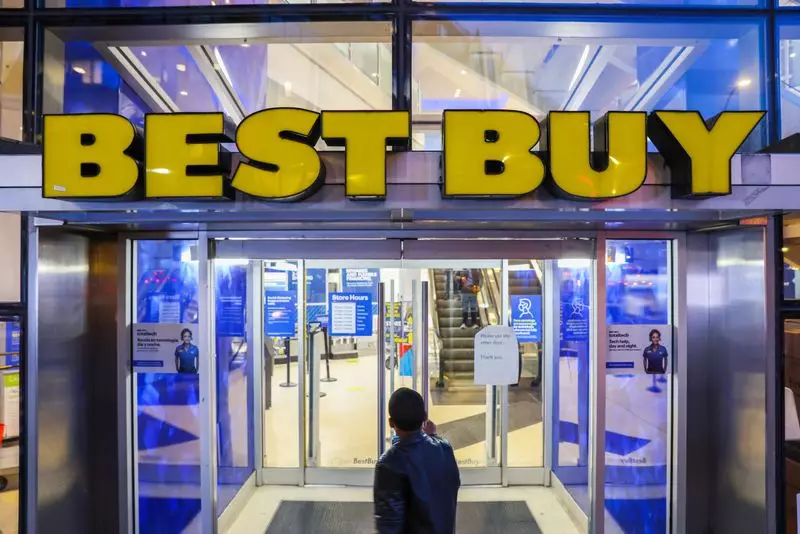After evaluating the recent upgrades and downgrades made by Wall Street analysts, one of the key takeaways is the double upgrade of Best Buy by Citi. The research team at Citi has raised their target price for Best Buy to $100, citing positive catalysts such as tech replacement cycles and margin execution. They believe that the business returns to growth and presents an attractive margin expansion story. Based on these factors, Citi upgraded Best Buy from Sell to Buy, signifying a shift in their previous negative thesis. However, there is a recognition of potential risks in the second half of the year due to consumer uncertainty.
On the other hand, Maxeon Solar faced a double downgrade from Goldman Sachs to Sell. The downgrade was a result of the company’s recent earnings report, which fell short of expectations. Additionally, Maxeon Solar has yet to secure important financing and announced an equity investment that could significantly alter its capital structure. The research team at Goldman Sachs highlighted concerns about liquidity, market conditions, and potential dilution risk for shareholders. As a result, they downgraded Maxeon Solar from Buy to Sell with a target price of $1, representing a significant downside from the previous projections.
Medifast also experienced a downgrade, with DA Davidson shifting its rating to Underperform. This downgrade was prompted by a meeting with Medifast that led to revised revenue projections and delayed advertising campaigns. The company’s lower marketing spend compared to competitors raised concerns about its competitive position. DA Davidson lowered its revenue and earnings estimates, anticipating a sequential flattening in sales. With the stock already down significantly year-to-date, there are suggestions of further declines in the future.
Conversely, Lululemon received an upgrade from HSBC to Buy following challenges faced after reaching an all-time high. The company experienced a decline in stock value due to missed guidance and inventory shortages in key products. However, strong performance in international markets provided a bright spot. HSBC analysts believe that the recent multiple compression has led to an overly punished stock, presenting an opportunity for growth as international revenue potentially increases.
In another upgrade, Jefferies expressed a bullish view on Collegium Pharmaceutical, highlighting potential growth opportunities following the departure of the CEO. The firm sees positive trends in the second quarter and believes that consensus estimates for EBITDA may be too low. Jefferies also pointed out the significant cash generation expected through 2028, indicating a promising future for Collegium Pharma. With these factors in mind, the firm upgraded Collegium Pharma to Buy with a target price of $44, emphasizing the upside potential in the stock.
Overall, the recent ratings changes from Wall Street analysts reflect varying perspectives on different companies. While some companies have been upgraded due to positive catalysts and growth potential, others have been downgraded based on missed expectations and concerns about capital structure and competitive positioning. It is essential for investors to conduct their own research and consider multiple factors before making investment decisions based on analyst ratings. As the market continues to evolve, staying informed and critically analyzing these ratings can help investors navigate opportunities and risks effectively.

